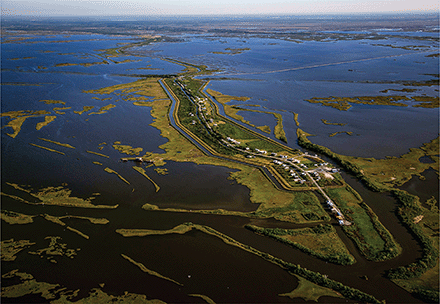In a new policy perspective article published today in the journal Science, Geographical Sciences adjunct professor Richard Moss and co-authors write that current approaches for planning relocation for potentially millions of people affected by climate change and related risks are “woefully inadequate" and risk worsening societal inequities. Relocation “places demands on science and governance … to manage trade-offs across interests, uncertainties in knowledge, and institutional ambiguity created by overlapping jurisdiction, authorities and expertise,” the authors wrote. Past policy failures and deep structural inequalities in society have contributed to many of the displaced people being vulnerable in the first place and have frequently excluded them from planning processes, which makes successful relocation even more difficult. An ethical and responsible approach that serves those affected will require a “pluralistic and integrated approach to action-oriented knowledge.”
Full article available here: https://science.sciencemag.org/content/372/6548/1276
Photo Credit: Josh Haner/The New York Times/Redux


